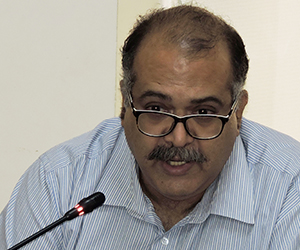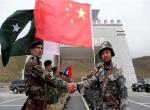More than anything else, experience should inform Indian policy-makers and the legion of analysts and commentators on Indo-Pak relations about the peril of using words like ‘irreversible’ and ‘uninterruptible’ to describe the extremely accident-prone peace (more likely, engagement) process between the two South Asian neighbours and adversaries. Even when superficially everything seems to be going well between the two countries, the state of bilateral relations remains quite fragile. A relatively minor incident has the potential to get blown out of proportion and unleash an emotional storm that results in a regression of any forward movement or progress that might have preceded it.
There was of course nothing ordinary about the recent events along the Line of Control (LoC) in Jammu and Kashmir. Had it been only a ceasefire violation by Pakistan, it would have been treated as something of a routine nature. Even the death of an Indian soldier as a result of cross-LoC firing would also have probably not been hyped up by the Indian media. The Indian Army would have taken such an incident in its stride, with the proviso that it would return the favour to the Pakistanis in due course. But a raid across the LoC by Pakistan Army regulars, and worse, the medieval barbarism of mutilating corpses of Indian soldiers and beheading one of them, crossed all the red lines.
Not surprisingly, once such an outrageous and unacceptable action became public knowledge, the incident acquired a life of its own, with the media, politicians, talking-heads and columnists all contributing to the rage in the country, and eventually forcing a very reluctant government of India to toughen its stand against Pakistan. Across the Radcliffe Line, however, the incident didn’t find the same salience. To an extent, the underplaying of the incident by the Pakistani media and their political class is an indication of how much the focus in Pakistan has shifted away from Kashmir.
A decade or so ago, the Pakistani press would have gone hysterical. But now there are so many other things happening – around the time of the LoC violation, there was a huge bomb blast in Quetta killing over 100 Shias, in Islamabad a cleric who had parachuted in from Canada was on the verge of conducting a Long March to force a complete political overhaul, the provincial government in Balochistan was being dismissed, around 20 soldiers were blown up in North Waziristan, the Pakistani Taliban were proposing a ceasefire, political confabulations and manoeuvres in preparation for the forthcoming general elections were in full swing etc. etc. – that Kashmir, and by extension India, have perforce been put on the backburner.
This, of course, doesn’t mean that Pakistan has forgotten all about Kashmir; only it is no longer a priority like it was until some time ago. The Pakistani strategy for now seems to be to keep probing India’s defences along the LoC, occasionally try and push in terrorists and infiltrators by giving them covering fire and generally not let things settle down in J&K. It is also important for Pakistan to keep reminding India to not think that Pakistan is a pushover because it is so embroiled in very serious internal crisis. While an increase in tension along the LoC suits Pakistan because this gives it the opportunity to try and once again convince the international community that the road to Kabul runs through Kashmir, it is unlikely if Pakistan would like to provoke an outbreak of hostilities along the LoC and risk a complete breakdown of the ceasefire agreement.
For its part, India too would like to avoid a resumption of the shooting match and artillery duels across the LoC, partly to avoid unnecessary and undesirable international attention to the Kashmir issue and partly because relative calm along the LoC is helping in normalising the situation in Jammu and Kashmir. Chances, therefore, are that things will settle down on India’s western front after the latest flare-up. The DGMO’s of the two countries seem to have indicated as much. India will make a show of toughness to satisfy public opinion – for instance, the PM’s statement and the Army Chief’s presser – and for a few weeks keep the engagement process with Pakistan on the hold. But it will be back to business as usual after things cool down, that is until the next flare-up when the entire cycle will repeat itself.
There is a slim possibility that something good might emerge from this incident. The increasing violations of the ceasefire by Pakistan over the last couple of years, which until now have been more or less brushed under the carpet, might receive greater focus in the talks that have been proposed between the two governments. Pakistan would certainly try to push through its proposals for conventional CBM’s along the LoC, which India has so far rejected. At the same time India will get the opportunity to lay down new procedures to ensure that there is peace and tranquillity along the LoC.
On the more substantive issue of the state of relations between the two countries and the principles on which India needs to formulate its Pakistan policy, there are lessons to be learnt from the latest spat between India and Pakistan. The one major take-away of this incident is the fickleness of diplomacy conducted in full public glare and also of diplomacy that seeks to benefit on the backs of greater interaction between the peoples of the two countries. In other words, depending too much on the so-called people-to-people relations to push forward the engagement process with Pakistan is a strategy fraught with consequences which are not in the control of the two States and their establishments.
The people of the Indian subcontinent are very emotional, something that can be of great advantage when things are all sweet and honey in giving a fillip to the engagement process; but when things go bad, these same emotions can swing things in the other direction by generating pressures that governments find too onerous to bear. When public opinion turns hostile on a foreign policy issue like Pakistan, it is quite natural for any government to get swayed by the emotional outpouring of an outraged public. The point is that when people and their emotions get involved in determining the pace and direction of a foreign policy issue, it results in what can be called a Pendulum Policy in which relations with another country swing from one extreme to another. This is exactly what was on display after the LoC incident.
Just a couple of days before the LoC violation, Pakistanis were being feted in India. The TV networks and newspapers were going overboard in covering the cricket series between the two countries. Trade and travel were the new buzzwords. There was excited anticipation of the new visa regime, including the visa on arrival facility. Businessmen were going to and fro striking deals, holding exhibitions and what have you. Pakistani artistes were being invited for live performances and participating in TV music, game and reality shows. Then suddenly the pendulum swung the other way. Hockey players were sent back. Singers and actors were no longer welcome. The Indian bureaucracy suddenly discovered a lacuna in the visa on arrival facility and put it on hold. The trade along LoC came to a standstill. Visitors to either country started making a bee-line for going back home. Some politicians started baying for blood and demanded breaking off relations and waging war. In short, from the hyperbole of Aman ki Aasha, the two countries swung to the other extreme of Aman ki Ashes!
This is hardly the way to conduct diplomacy, even less so by a country with ambitions to play a role on the global stage. Surely, for two nuclear weapons states to behave in such an emotional manner is rather strange and unseemly. A large part of the blame for such pendulum swings rests on the government. What some analysts defend as the policy of strategic restraint is perhaps more appropriately described as a policy of strategic fuzziness and strategic irresoluteness, aptly summed up in a recent article by the former RAW chief, Vikram Sood, who asks “why are we talking to them [Pakistan], with whom, about what, to what end and for how long?” It is precisely because of this strategic fuzziness that is guiding India’s Pakistan policy that the government hasn’t been able to convince a substantial section of the public about its approach towards Pakistan. Add to this the glaring inability of the current dispensation to understand the nature of the beast called new media – electronic, social, cyber, even print – and try and manage the information flow so that it always has a handle over the situation, and it is no surprise that the entire edifice of the government’s Pakistan policy has come crashing down.
Perhaps the time has come for India to reduce if not remove the emotional quotient that underscores its Pakistan policy. India’s Pakistan policy should not be guided by the heart, but by the head. This means that instead of an ad hoc policy based on a hope and a prayer that ultimately good sense will dawn on the Pakistani establishment, India needs to have a well-structured policy which is based on facts and not emotions. Rather than harbouring silly notions of forging friendly ties with Pakistan – relations between States are based on interests and friendship is incidental, at best a by-product of these interests – India should adopt a clinically professional approach towards Pakistan in which emotions are subjected to interests and not interests to emotions. In other words, have a relationship without wanting to get related.
This means that while India should listen to all the sweet nothings that come its way from Pakistan, the substance of relations should be based on actions and not empty words being cooed into India’s ears by Pakistan's leaders. There are always lessons to be learned, even from an adversary. Pakistanis never tire of saying that only Allah knows about the intentions (or if you will, mindsets) of people. Therefore, instead of falling for or looking for changed mindsets in Pakistan, as some retired diplomats turned politicians exhort India to do, let Pakistan’s actions inform us of their changed mindsets. Until now, Pakistan’s actions on the ground really give no indication of either a changed mindset or even a paradigm shift in its approach towards India. In the meantime, keep your powder dry because you never know when you might need to use it to let the adversary know that it crosses India’s red lines at its own peril.
Published Date: 21th January 2013









Post new comment